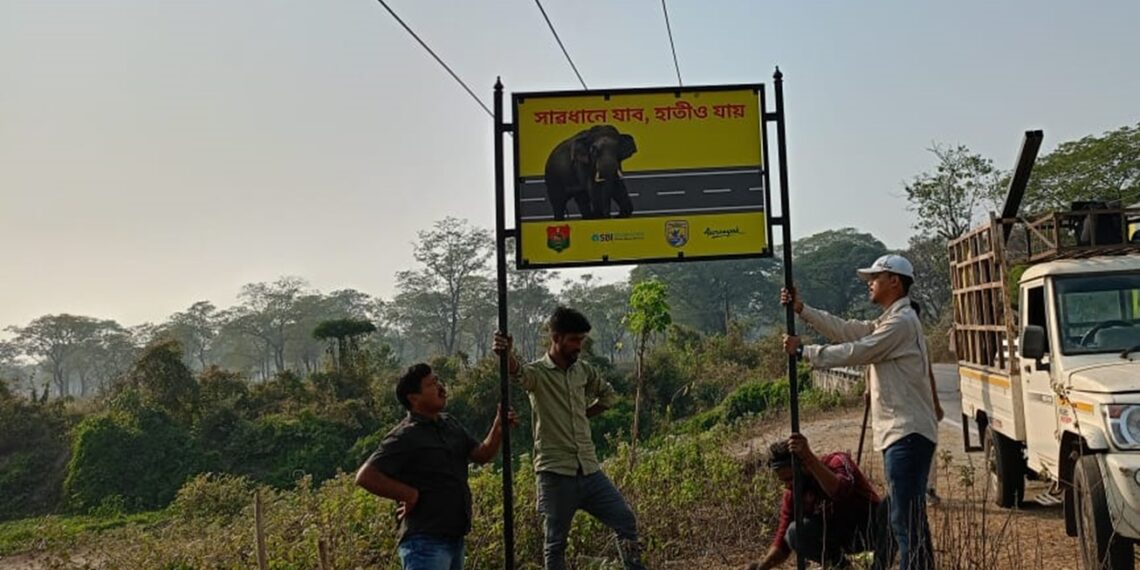GUWAHATI: In a bid to promote human-elephant coexistence, warning signboards have been installed at strategic locations in the Udalguri, Tamulpur, and Baksa districts of Assam.
The 12 newly erected signboards stand sentinel along crucial locations such as Paneri Tea Garden, Bhooteachang Tea Garden, Orangajuli, Nagrijuli, Kumarikata, Khairani, Uttarkuchi, and Subankhata.
Their purpose is to serve as a vital warning system, cautioning people about the potential movement of wild elephants in the vicinity.
An initiative of Aaranyak, a biodiversity conservation organisation, move aims to address the human-elephant conflict (HEC) that has unfortunately led to several human casualties in the areas lacking warning boards about the possible presence of wild elephants.
Dr. Bibhuti Prasad Lahkar, a senior conservation scientist at Aaranyak, emphasised the importance of these signages, stating, “The signboards highlight the elephant’s presence in the area, and how we all must be careful to avoid unwanted encounters with elephants, and improve safety for both people and elephants. This also serves as a means of awareness and how to share space. For wider reach, we have currently installed signages in English, Assamese, and Hindi languages.”
The strategic selection of locations for these signboards was done in consultation with local communities, forest personnel, and tea garden authorities.
A survey was conducted to assess the feasibility of installation, ensuring the effectiveness of these warning systems.
Dr. Alolika Sinha, a wildlife biologist associated with HEC mitigation and coexistence efforts at Aaranyak, expressed gratitude to the SBI Foundation and US Fish and Wildlife Services for their support in this crucial initiative.
These signboards are expected to not only safeguard lives but are also hailed as a proactive step towards fostering an environment where wildlife and people can coexist harmoniously.















